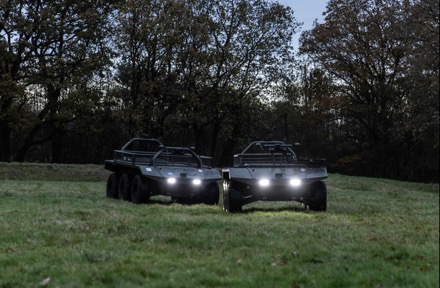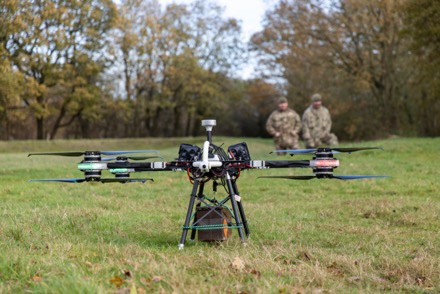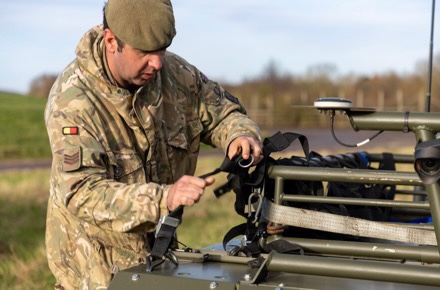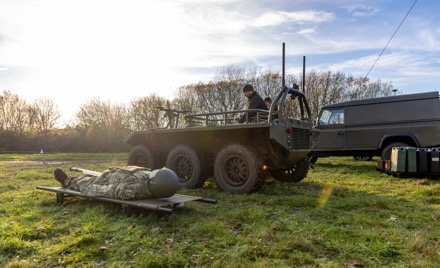The British Army has embarked on a six-month experiment, working with industry, that will focus on the feasibility of automating supplies to soldiers.

This innovative experiment, known as Project Theseus, will determine which tasks in the crucial ‘last mile’ of the battlefield can be automated. This technology will be used to transform the Army of the future.
Under Project Theseus, it is hoped the use of self-driving air or ground platforms to deliver combat supplies, including ammunition, materials, food and fuel, will reduce the need for personnel to risk their life by entering into what are typically hostile environments.
Contracts worth £3million each have been awarded to Horiba Mira, Rafael, and Marlborough Communications Limited (MCL) to provide full ground and air automated resupply systems for the tactical battlefield.

Robotic and Autonomous System capabilities will play an increasing role in delivering deployed sustainment in the near-future. Doing so will increase combat power through increasing mass and tempo of resupply, as well as reducing risk-to-life for our people, leading to an increased probability of mission success.
-MAJOR MATT MCGARVEY-MILES, SO2C ROBOTIC AND AUTONOMOUS SYSTEMS, FUTURE FORCE DEVELOPMENT
On 9 December 2021, Nuneaton-based Horiba Mira demonstrated its autonomous ground and air vehicle platforms. This included an uncrewed aerial vehicle (drone) taking off, loaded with ammo boxes and dropping them to soldiers some distance away, and a ground platform loaded by soldiers with a dummy casualty evacuation, which was then sent back to the command station.
The project is part of the Army’s wider Robotics and Autonomous Systems experimentation within the Expeditionary Robotics Centre of Expertise. It has built upon the foundation of autonomous systems development from projects such as Robotic Platoon Vehicle (RPV), which predominantly focused on platform autonomy.

Major Matt McGarvey-Miles, SO2C Robotic and Autonomous Systems, Future Force Development said,
“Robotic and Autonomous System capabilities will play an increasing role in delivering deployed sustainment in the near-future. Doing so will increase combat power through increasing mass and tempo of resupply, as well as reducing risk-to-life for our people, leading to an increased probability of mission success.”
Theseus also exploits the innovation, findings and technology demonstrator investigations delivered by Dstl’s Autonomous Last Mile Re-Supply (ALMRS) project.
Theseus is looking at the entire resupply process, as a system, rather than individual platforms. It will seek to identify the most effective tasks to automate, including the use of AI tools.

Experimentation with the Field Army will take place in the UK, culminating with a large-scale experiment in March 2022.
The project will not only focus on the use of self-driving air and ground vehicles but also the autonomous processing, ordering and delivery of ammunition, fuel and other items to troops over the last mile of the battlefield. The aim is to give soldiers the ease of an Amazon-style delivery service when and where they need it most.
The project will deliver six months of funded research and development and a series of capability experiments. The autonomous systems being put through their paces are designed to augment the existing military capability, not replace it, and will enable soldiers to be redeployed to the tasks that only humans can do.
– Courtesy of British Army

